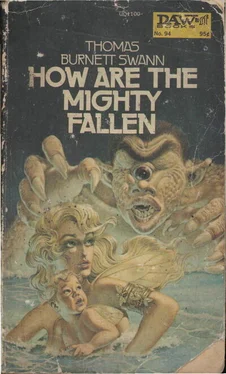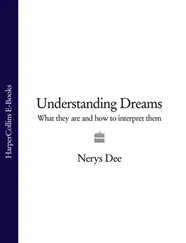Thomas Swann - How are the Mighty fallen
Здесь есть возможность читать онлайн «Thomas Swann - How are the Mighty fallen» весь текст электронной книги совершенно бесплатно (целиком полную версию без сокращений). В некоторых случаях можно слушать аудио, скачать через торрент в формате fb2 и присутствует краткое содержание. Жанр: Фэнтези, на английском языке. Описание произведения, (предисловие) а так же отзывы посетителей доступны на портале библиотеки ЛибКат.
- Название:How are the Mighty fallen
- Автор:
- Жанр:
- Год:неизвестен
- ISBN:нет данных
- Рейтинг книги:4 / 5. Голосов: 1
-
Избранное:Добавить в избранное
- Отзывы:
-
Ваша оценка:
- 80
- 1
- 2
- 3
- 4
- 5
How are the Mighty fallen: краткое содержание, описание и аннотация
Предлагаем к чтению аннотацию, описание, краткое содержание или предисловие (зависит от того, что написал сам автор книги «How are the Mighty fallen»). Если вы не нашли необходимую информацию о книге — напишите в комментариях, мы постараемся отыскать её.
How are the Mighty fallen — читать онлайн бесплатно полную книгу (весь текст) целиком
Ниже представлен текст книги, разбитый по страницам. Система сохранения места последней прочитанной страницы, позволяет с удобством читать онлайн бесплатно книгу «How are the Mighty fallen», без необходимости каждый раз заново искать на чём Вы остановились. Поставьте закладку, и сможете в любой момент перейти на страницу, на которой закончили чтение.
Интервал:
Закладка:
Ahinoam too had enjoyed a change. She has forgotten the insult of her rejection, the people said, the women at their looms, the farmers tilling their fields with the plowshares which had been their weapons. Poised in midsummer, she has returned to spring, and where does she learn the happy airs she sings, those sweet, tinkling lines which end like bell notes, so different from the loose, free-swinging psalms of Israel? When she sang her “Hymn to Ashtoreth,” no one except for Samuel and the priests of Yahweh raised a protest:
I am the leaves green-tender on the vine,
The grapelets swelling into purple bait
To tempt the bee, that harvester of air.
I am the honied freight
Cradled in baskets by sun-coppered hands;
The wine press cornucopia-heaped with fruit,
The dancing feet that liberate the juice,
The piper with his flute…
“Well return to Elah and swim in the stream,” said David.
“And Mama will pack us a lunch of quinces and turtledove eggs.”
“And well sleep in your tree house.”
“With only the stars for company. The Giant Bear will watch over us and guard against ghouls and Liliths.”
They visited Elah, and Endor too, a town where witches pretended to be wives and plied the twin trades of sorcery and prostitution, and David’s family in Bethlehem, and the sacred stones of Gilgal, planted by Joshua, and David thought: The country is almost “Unified for the first time since the death of Joshua. A few more wars, a few more years, and Jonathan will sit on the throne, and I will lead his armies, and the ports of Phoenicia and Philistia will hold our round-bellied merchant ships and the pharaoh of Egypt will send us gaming boards of agate and onyx, and papyrus scrolls with the Book of the Dead inscribed in hieroglyphics which look like scarabs or lightning flashes.
David, now eighteen, had never remained in love for more than a month, nor met a girl whose company pleased him as much as her body. The pleasures of Jonathan, however, seemed to him both various and invariable. David loved him for his sculptured features, bronzed with the sun, and his unimaginably yellow hair, yellower than the bands on a bumblebee, and his eyes, which seemed to have borrowed their green from the seas at the edge of the world. He loved him too for the gentle but powerful sensuality which he had aroused in a youth accustomed to an unnatural asceticism.
But Jonathan’s beauty was not his chief attraction. He surprised and captivated David with a manner which was at once humility and awe. He treated a sphinx-moth, a goldfinch, a fox as if they were creatures of wonder, and even inanimate objects like stones or streams aroused him to praise. For example, he built a garden behind the palace in Gibeah, with little paths wandering among stone animals-bears, cheetahs, hyenas, fennecs, foxes-and clumps of oleander bushes and tamarisks tended as carefully as children, watered, trimmed and shaded from the withering sun.
“It’s for the Great Mother because she helped you against Goliath,” Jonathan explained. Israelites did not as a rule grow gardens for the sake of beauty. They had fought the barren land to eke a thin subsistence or fought ungenerous neighbors for a richer land, and to them a garden was meant to supply food. A tree should give fruit or shade. A stream should turn mill wheels or fill pitchers. It was the same practicality which had inspired the law against the Sin of Sodom. The Israelite elders, Jonathan explained, argued that a man’s love for a man was an affront to nature; a barrenness which would first limit the birth of children, then the number of soldiers, then Israel’s power to defend herself against her enemies. Like a garden of chrysanthemums, it produced no practical benefits; the elders therefore decreed that men should love only women and father many children.
“But Ashtoreth knows there will always be men to love women. If men love men, why not let them honor the Goddess in another way? Let them affirm the order and beauty-of her creation by a continual hymn of praise-your psalms, my garden, and most important, our love. To love means to link; to link means to express the continuity of life, the unity of existence.”
“Jonathan, you sound like a Philistine philosopher.” Jonathan laughed. “Truly, David? It’s the Lady who speaks through me, but she has had her say. Let’s continue our worship. You sing a song to her while I work in her garden.” And David sang:
“Listen! Ashtoreth is in the corn.
The lithe stalks bend beneath her subtle hands
And sigh to fill the furrows of her path.
Now still she stands,
Inviolate as stone…“
At first the garden looked strange and useless to him. A path ought to lead to a house or a road and not meander like an undecided snake. And rocks-who ever heard of piling them into animals-hyenas at that, which everybody except Jonathan disliked-and crouching them not among edible vegetables but inedible narcissi? (“Thou shalt make no graven image ”)
“We could at least grow some carrots,” said David. “A garden ought to be good for something.”
“But that’s the point.” Jonathan smiled. “It has no practical purpose. It simply is.”
David shook his head. “I feel as if I ought to be practicing with my bow.”
“Practicing, practical. We hear too much of those words. Here, hand me that stone.”
David obeyed with a wistful smile. “Do you know,” he said, “that you are as stubborn as I am? I’m going to call you the lovable tyrant. What’s more, in a strange kind of way, we have changed places with each other.”
“No,” said Jonathan. “Our souls have knit, that’s all.”
Soon David was helping to build an elephant, a beast which neither he nor Jonathan had ever seen but which they had heard described by an Egyptian traveler who had seen the descendants of the elephants imported from Nubia by the boy-pharaoh Pepi.
“The snout’s too long,” said David with finality.
“It’s supposed to be long enough for him to dash water over his back.”
“This way he will trip over it or snare it in thickets. And whoever heard of such ears? They look like oversized parasols. Does he raise them over his head to keep out the sun?”
“Everything ought to be big except his eyes. The ears are for swatting flies.”
“He’s as uncouth as a camel,” muttered David, who, like most Israelites, ranked camels and dogs-the first intractable, the second verminous-among the lowest animals and infinitely below asses and oxen.
“Not uncouth, just different,” said Jonathan. “Am I uncouth because of my wings?”
The finished elephant sported a long snout and preternaturally large ears.
Sometimes Michal helped them in the garden. A woman’s tasks-weaving, drying flax on the flat-roofed palace-did not interest her. She respected their frequent need for solitude and sensed, too, when they would like her company. She offered good advice about the garden, whose purpose-or purposelessness-she understood more quickly than David. She discussed the rumor that the Philistines were building bronze chariots in their foundries near Gaza. She openly admired David’s ruddy looks, and yet looked up to Jonathan as the ideal against whom she must measure even David. All in all she was frequently welcome, and David admired her trim runner’s body, resembling that of her brother, and the sun-bronzed skin, almost honey-colored, which would have made carmine or kohl an affront to her face. David suspected that he would have fallen in love with her had it not been for Jonathan. Though her beauty to that of Jonathan and Ahinoam was the Nile compared to the Great Green Sea, and though she lacked their command of magic and the magic of their persons, she was frank, open, and highly companionable, and she made no secret of loving David, whom she called the Red Warrior because of his hair.
Читать дальшеИнтервал:
Закладка:
Похожие книги на «How are the Mighty fallen»
Представляем Вашему вниманию похожие книги на «How are the Mighty fallen» списком для выбора. Мы отобрали схожую по названию и смыслу литературу в надежде предоставить читателям больше вариантов отыскать новые, интересные, ещё непрочитанные произведения.
Обсуждение, отзывы о книге «How are the Mighty fallen» и просто собственные мнения читателей. Оставьте ваши комментарии, напишите, что Вы думаете о произведении, его смысле или главных героях. Укажите что конкретно понравилось, а что нет, и почему Вы так считаете.












